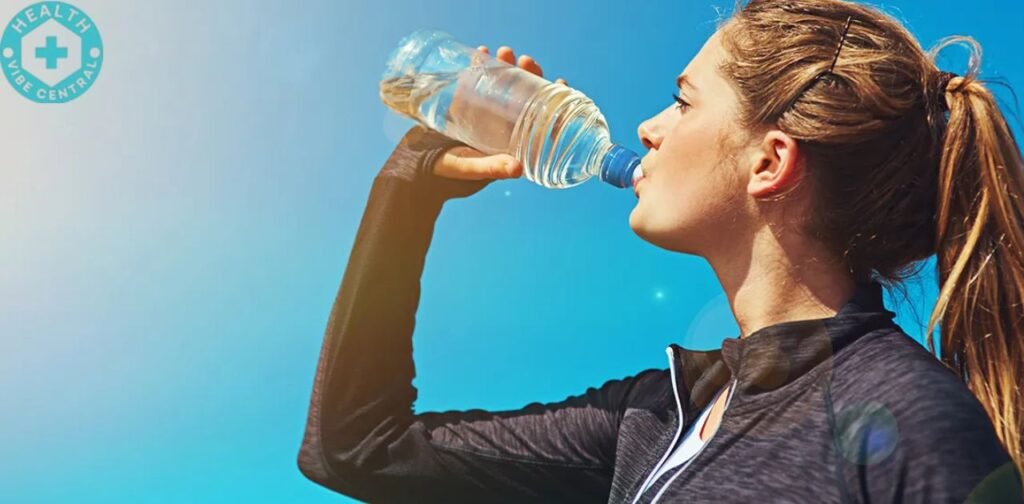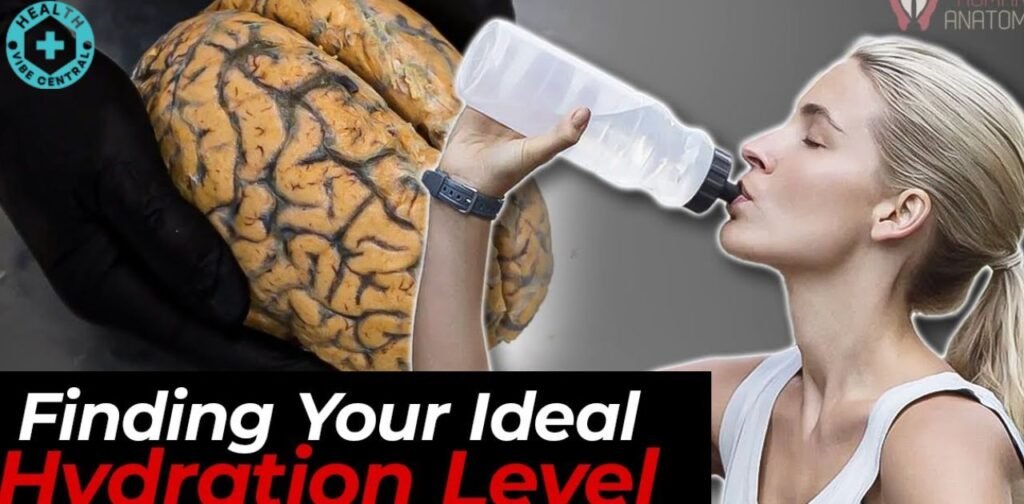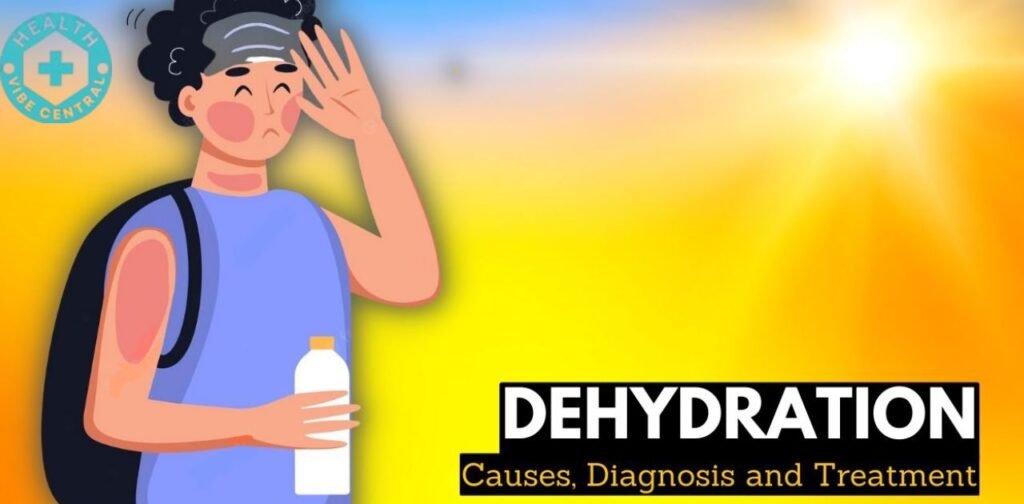
Water is the essence of life. Body temperature regulation and digestion support are among its benefits as it serves as both a headache reliever and a joint organ and muscle nursing fluid.
The composition of human bodies includes a minimum of 60% water while all cells tissues and organs need water properly execute their functions. People throughout the world possess easy access to clean water but many consumers do not consume sufficient water each day and become dehydrated that leads to health problems.
This article explains why water holds vital significance for health and shows its impact across human wellness.
1. Why Hydration is Essential for the Human Body
The body relies on water as an essential component to execute numerous tasks along with its regular functions. All human cells alongside body organs use water as an essential requirement to operate successfully.
Sweat functions through water to help regulate body temperatures when sweating stops overheating. The substance serves as an eye and joint ointment by reducing friction that causes muscles and bone wear and tear. Proper hydration of the body remains essential because failure of crucial systems leads to distress for the person or develops into severe medical complications.
Water plays a vital role in elimination because it provides the required purification medium. Water functions as the basic requirement for kidney blood filtration operations so kidneys release waste through urine production.
2. The Role of Hydration in Physical Performance
Those people who participate in physical activities must prioritize their water consumption even more than others. Water enables effective muscle movement by ensuring oxygen supply as well as nutrient delivery and electrolyte balance.
The excessive consumption of DRED leads to fatigue and simultaneously affects muscle recovery and eventually reduces body tone. Dehydration levels that reach severe extent can trigger muscle contractions and extreme heat conditions may cause heat fatigue together with heat syncope and heat hyperpyrexia and heat stroke.
The process of body dehydration occurs quickly during periods of hot and humid sweating conditions. All body processes during recovery from physical activities require hydration just like other bodily operations.
3. Impact of Hydration on Mental Health

Fluid loss not only affects your muscles but also your brain, to which your body plays close attention to the availability of. Research has revealed that even a 1-2% loss of body water blunts your thinking, your memory, your concentration, and your mood.
This occurs mainly because when the body is dehydrated the brain cannot function properly and therefore takes longer time to process information and make decisions. Some of the common consequences of dehydration include lack of concentration, memory loss, fatigue, headaches and dizziness; things that students, professionals, and any other individual, who needs a sharp brain will not wish for.
4. Water for Skin Health
Another function is related to neurotransmitters, which are the cliences that enable discrete signals in the brain, and water. The chemical result capable of imbalances by drawback of body water includes impact mood swings, irritability, and anxiety stages.
The above research has also indicated that chronic dehydration may cause or worsen more serious mental disorders such as depression. This is probably because when one is dehydrated, arterial blood flow to the brain is low to supply the organ with the oxygen and nutrients required for good mental health.
Therefore, besides being important for the body, water is also good for your mental state and helps you keep your wits about you.
Well moisturized skin is healthy skin. Mature and healthy skin is when the body is in its best physical state, the skin glowing, moist and fresh. Water is good for the skin and helps to keep it from developing premature wrinkles and fine lines on the skin surface. However, in case of a reduction in water in your body, your skin looks rough and also develops wrinkles at a relatively young age.
Indeed, the skin is also helped to be detoxified through the use of water. It is beneficial in removing acne causing toxins from the skin and organs. Drinking a lot of water also helps in the prevention of acne and thus would give you clearer skin. Moreover, the skin requires water to form a barrier against pollution and the sun’s ultraviolet rays and other conglomerates.
5. Hydration and Digestive Health
They require fresh water and do not have it. It assists in reducing food into small parts so that the nutrients can be transported in the blood. Lack of it hampers digestion and may lead to such problems as constipation and bloating. However, dehydration is one of the leading causes of constipation because the body cannot effectively push the wastes through the intestinal tract.
Another importance of water is in synthesis of digestive juices which include the stomach acid. It is important for breaking-down of food and absorption of nutrients and it includes these juices. If you are dehydrated the body is not going to produce the required amount of digestive enzymes therefore experiencing indigestion and other discomforts.
Healthy intake of water makes digestion easier thus enhanced evacuation to prevent cases of constipation, dysentery and diarrhea.
6. Hydration for Kidney and Heart Health
The main function of your kidneys is to cleanse blood and purge the body from waste products such as urea.
Sufficient water also involves the proper functioning of the kidneys, so conditions like development of kidney stones, infections of the urinary system are averted. Anytime you are experiencing a low level of water in your system, the concentration of urine can become difficult for the kidney to manage thus risking the development of kidney stones.
Fluid and water intake also has an implication in the health of the heart. Blood volume regulation is auspicious by water whereby blood pressure is upheld
Lack of adequate water will reduce circulation and eventually lower blood volume meaning the heart has to struggle to pump blood throughout the body.
Systemic inflammatory changes over the years lead to increased pressure and various cardiovascular problems. Drinking water also enables your heart vessels to work correctly, therefore preventing health risks that emanate from heart diseases.
7. Signs and Symptoms of Dehydration

In severe form, symptoms of dehydration may include dried up skin, dry and sticky mucous membranes, sunken eyes and cheeks, lethargy, dizzy, headache, delirium, and shock. It has been found that, slight to moderate depletion of body water is characterized by symptoms such as; Read the mouth feels dry
Tiredness; and; Headache. You might also develop feelings of thirst or perceive that your urine has a pale yellow color – this all points to dehydration.
When dehydrated, individuals lose more energy and become increasingly weak when the state is aggravated.
It may cause conditions such as dizziness, confusion or fainting. In severe conditions, dehydration triggers potentially fatal diseases such as heat stroke or even kidney failures. These are some of the signs that should help people recognize and prevent serious medical consequences when they arise from dehydration.
8. Myths and Facts about Hydration
Another water myth is that certain populations require a certain amount of overall daily water intake in the form of eight glasses. As this might be a general rule of thumb, the actual amount needed can be rather different and depends on age, sex, activity, and climate. For example, the active people, or those, who live in hot weather, may require much more than eight cups of water daily.
9. Tips for Staying Hydrated
The unjunk your thirst information below will help you to easily understand how you can maintain your proper hydration. Here are some simple tips to ensure you’re drinking enough water:
- A reusable water bottle enables easy intake of water throughout the day. Water-rich foods including cabbages and tomatoes with carrots alongside cucumbers and watermelons together with oranges serve as quality water sources to fulfill daily water recommendations.
- Useful applications with alarms serve as a tool for people who struggle to remember their water consumption. Every glass of water takes on a new flavor through lemon or lime or select small berries added to the wate
10. The Environmental Impact of Water Bottles

While people need to enhance their water consumption they tend to select plastic water bottles as their beverage choice although these bottles present environmental challenges. The expanding plastic bottle manufacturing sector leads to millions of these non-environmentally friendly products becoming pollutants that endanger wildlife when they end up in landfills and the ocean.
Conclusion
Drinking water is one of the easiest and most effective methods of boosting and sustaining good health. Water is indispensable in some ways for any aspect of a human body or mind that ranges from motor performance, mental performance, skin condition, and digestive functioning. It also helps one maintain one’s moods, fosters healthy body functions and decreases a chance of getting an ailment such as kidney stones and heart complications.
1 thought on “Best Tips for Hydration 2025”